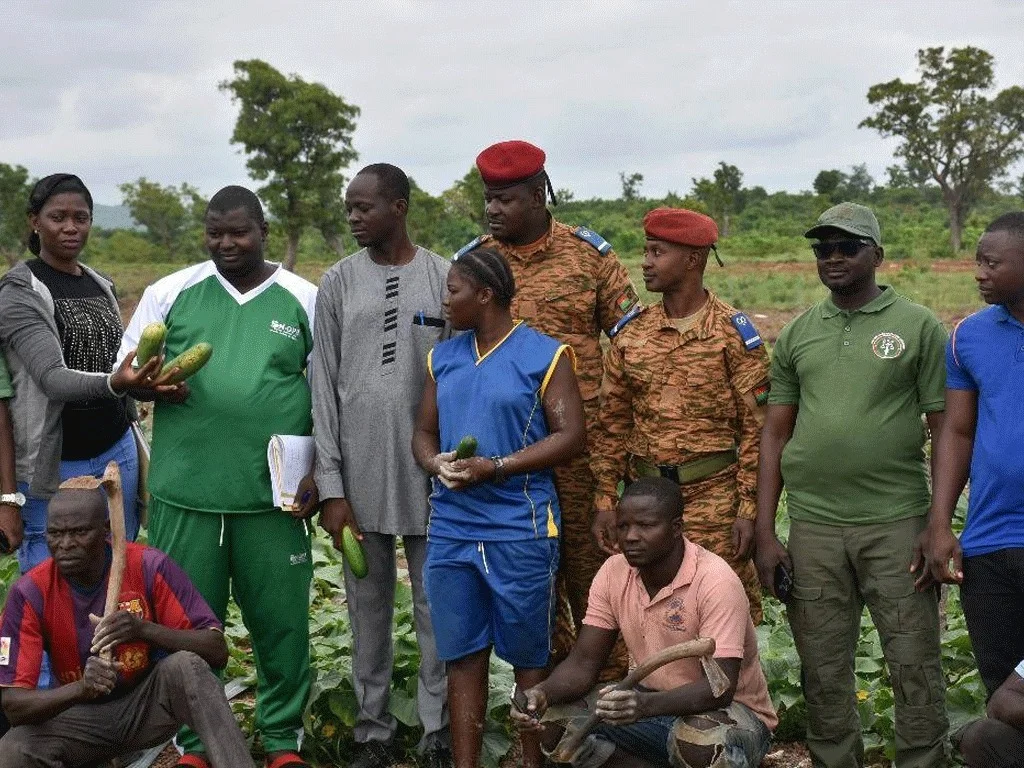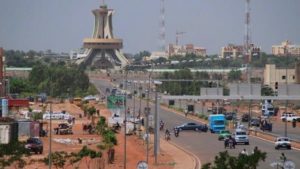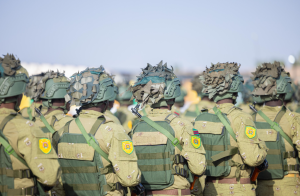Burkina Faso: Gaoua’s 22nd RIC in action for food self-sufficiency

Gaoua, July 14, 2025 (AIB) – As part of the Presidential Initiative for Agricultural Production and Food Self-Sufficiency (IP-P3A), the 22nd Commando Infantry Regiment (RIC) of Gaoua is implementing an ambitious agricultural project on a 4-hectare plot. A monitoring mission from the National Office for Major Projects of Burkina Faso (BN-GPB) visited the site on Monday, as part of a national tour aimed at assessing agricultural operations in six military barracks and detention centers across the country.
This project, financed with 40 million CFA francs, aims to strengthen food security within military camps while also enhancing the agricultural skills of soldiers and inmates. Since May, the 22nd RIC has been growing a variety of vegetables including tomatoes, eggplants, cabbages, cucumbers, zucchinis, and maize.
“The harvests ensure the daily rations for the soldiers. The surplus is sold in local markets due to a lack of storage facilities”, explained the regiment commander, Commander Kiénou Farabé Gaston.
The farming is carried out by the regiment’s soldiers, supported by inmates from detention centers, made available by the Ministry of Justice. “A soldier is versatile. These agricultural activities are also useful for their reintegration once they return to civilian life”, emphasized Commander Kiénou, who called for the creation of a sustainable support fund to back this innovative project.
The site is equipped with a modern irrigation system powered by a 5 m³/h borehole, a solar pump, a 50 m³ retention basin, a water tower, and a “laser spray” sprinkler system.
The BN-GPB monitoring mission, in partnership with the Central Directorate of Military Engineering (DCGM) and the General Directorate of Prison Administration (DGAP), is also visiting other sites, including the barracks in Banfora and Bobo-Dioulasso, the Baporo Agricultural Promotion Center, and the detention centers of Diébougou and Dédougou.
This initiative marks a significant milestone in the national food self-sufficiency policy and could serve as a model of resilience and social reintegration for other military and penitentiary institutions across the country.






